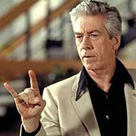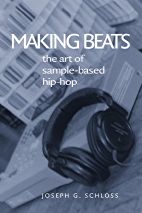With Footnotes
 HarveyCanal
"a distraction from my main thesis." 13,234 Posts
HarveyCanal
"a distraction from my main thesis." 13,234 Posts
Since I haven't really been writing as of late, I've been reading a bunch... This book, in its chapter on the most recent resurgence of Houston rap, credits Swishahouse business partner T. Farris for producing the violin-laden breakthrough version of "Still Tippin" by Mike Jones, Slim Thug, and Paul Wall. Too bad that it was Salih Williams who did it.
This book, in its chapter on the most recent resurgence of Houston rap, credits Swishahouse business partner T. Farris for producing the violin-laden breakthrough version of "Still Tippin" by Mike Jones, Slim Thug, and Paul Wall. Too bad that it was Salih Williams who did it. Very early on, this book refers to the "carpetbagging ways" of Paul Simon.
Very early on, this book refers to the "carpetbagging ways" of Paul Simon.  This book should be required reading for all Americans and actually shows that one who humbly moves in on a distant culture doesn't necessarily have to wind up being labeled a carpetbagger (unlike the author of Triksta).
This book should be required reading for all Americans and actually shows that one who humbly moves in on a distant culture doesn't necessarily have to wind up being labeled a carpetbagger (unlike the author of Triksta). This book has so much potential, makes some good points, includes interviews with cool dudes such as Mr. Supreme, Jake One, King Otto, Specs, Wordsayer, and Negus I, but ultimately proves why academic writing is for the birds. And lastly, over at the Austin Chronicle, it still doesn't look like they've found any sort of replacement for me as a writer concentrating on rap music...but they did grab someone from the city desk to pen this preview of a K-Rino concert...
This book has so much potential, makes some good points, includes interviews with cool dudes such as Mr. Supreme, Jake One, King Otto, Specs, Wordsayer, and Negus I, but ultimately proves why academic writing is for the birds. And lastly, over at the Austin Chronicle, it still doesn't look like they've found any sort of replacement for me as a writer concentrating on rap music...but they did grab someone from the city desk to pen this preview of a K-Rino concert...
 This book, in its chapter on the most recent resurgence of Houston rap, credits Swishahouse business partner T. Farris for producing the violin-laden breakthrough version of "Still Tippin" by Mike Jones, Slim Thug, and Paul Wall. Too bad that it was Salih Williams who did it.
This book, in its chapter on the most recent resurgence of Houston rap, credits Swishahouse business partner T. Farris for producing the violin-laden breakthrough version of "Still Tippin" by Mike Jones, Slim Thug, and Paul Wall. Too bad that it was Salih Williams who did it. Very early on, this book refers to the "carpetbagging ways" of Paul Simon.
Very early on, this book refers to the "carpetbagging ways" of Paul Simon.  This book should be required reading for all Americans and actually shows that one who humbly moves in on a distant culture doesn't necessarily have to wind up being labeled a carpetbagger (unlike the author of Triksta).
This book should be required reading for all Americans and actually shows that one who humbly moves in on a distant culture doesn't necessarily have to wind up being labeled a carpetbagger (unlike the author of Triksta). This book has so much potential, makes some good points, includes interviews with cool dudes such as Mr. Supreme, Jake One, King Otto, Specs, Wordsayer, and Negus I, but ultimately proves why academic writing is for the birds. And lastly, over at the Austin Chronicle, it still doesn't look like they've found any sort of replacement for me as a writer concentrating on rap music...but they did grab someone from the city desk to pen this preview of a K-Rino concert...
This book has so much potential, makes some good points, includes interviews with cool dudes such as Mr. Supreme, Jake One, King Otto, Specs, Wordsayer, and Negus I, but ultimately proves why academic writing is for the birds. And lastly, over at the Austin Chronicle, it still doesn't look like they've found any sort of replacement for me as a writer concentrating on rap music...but they did grab someone from the city desk to pen this preview of a K-Rino concert...I swear that I have never met this dude. So with that I must say...and y'all thought it was only me.K-RinoVictory Grill, Sunday, Jul 22 Never preoccupied with the purple stuff during his decades in the Houston underground, K-Rino trained his sights elsewhere. Aside from coalescing generations of rap talent under the banner of his South Park Coalition, 2007's Book Number 7 reconciles Rino's almost-Aceyalone-esque metaphysics[/b] with life's urgent, sometimes violent realities. He comes to the Victory Grill with Miami's Slim Gutta and Texas boys Southbound, Meek, DWE Clik, and Klick Tight Mafia. ??? Wells Dunbar

Comments
I posted something about this book a while back. I liked it a lot, although I remembered reading the part you mention and thinking, "Wasn't that Salih Williams?" Were there any other glaring inaccuracies that you're aware of? I hope not, because I thought it was an entertaining and informative read for the most part. I'd definitely recommend it to anyone who wanted to get a broader idea of the range and history of Southern hip-hop.
How was the rest of this book?
So far I've only read the 2 chapters on Houston and the one chapter on New Orleans.
Aside from the Salih mistake, they're fairly decently done i.e. ample.
But I'd prefer to read such things from a much-more underground perspective.
For instance, the way that Mystikal absolutely owned New Orleans rap circa '95 by way of his debut indie release didn't seem to garner much attention from the writer.
I take your point, but in the continuing absence of "Murder Dog's Definitive History Of Southern Rap", I think this does a good job. I thought that, in many places, it provided an interesting and possibly broader historical perspective that you mightn't necessarily get from a book which approached the subject matter from a purely underground angle. The fact that the subtitle refers to Outkast and Timbaland does suggest that it's not exclusively aimed at a specialist audience either.
The story about the rise of "Triggerman" as a cornerstone of N.O. rap was fascinating to me, as was the section on DJ Screw. I was a bit surprised to see so little mention of Tony Draper, as it seemed as if at one point he was making moves every bit as significant as J-Prince and them. Again, though, the nature of these things being what they are, certain figures and events are bound to be overlooked in comparison to others.
Yeah, I am supposed to know the limitations of the book going into reading it. But then again, it's such an overground/disconnected perspective that has the first Houston chapter begin by extensively referencing DJ Premier and Robbie Van Winkle.
It's a much better pan-regional survey than I would have expected. It's also still virtually the only one. Worth checking out.
I recently heard this author on NPR. he spent a good chunk of time talkin bout Tennesee by Arrested Development which I thought was a bit strange. is that a focus in the book too?
Haha... yes. He spends a lot of time talking about them and then at the very end admits that they weren't even from the south and that nobody in Atlanta listened to them or felt that they represented Atlanta. I kind of had the sense that he had already written the chapter and then somebody pointed those things out to him, but he didn't want to see the work he'd put into it go down the drain.
Not to an excessive degree, but yes, he does write about it. After all, it was explicitly about The Southern Experience (or A Southern Experience) in a way that few internationally successful hip-hop records were at the time (like I'd know either way, but still, y'know?). It was a huge hit back when nobody was really trying to be country on a rap song, much less some kind of boho-country hybrid.
I dunno, I read that more as him writing about the way A.D. were kind of appropriating certain signifiers of Southern culture as a means of making themselves appear different or unique, but that because they didn't have a direct connection with the South, they couldn't sustain that approach in a convincing way and thus fell off with an almighty thud.
Eh... there was no reason to devote that many pages to a group like Arrested Development in a survey work like this where space was at such a premium.
A single paragraph would have been adequate--really if he'd limited himself to the material with which he concluded his treatment of the group, it would have been much better.
They're about as important to the history of southern rap as Cowboy Troy, and that's about the amount of coverage they should have received.